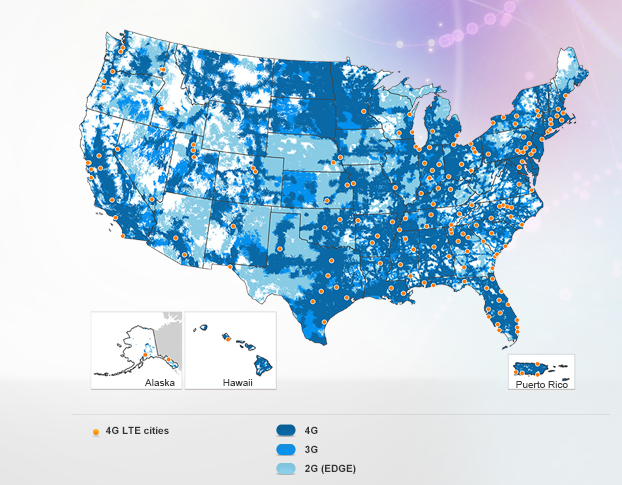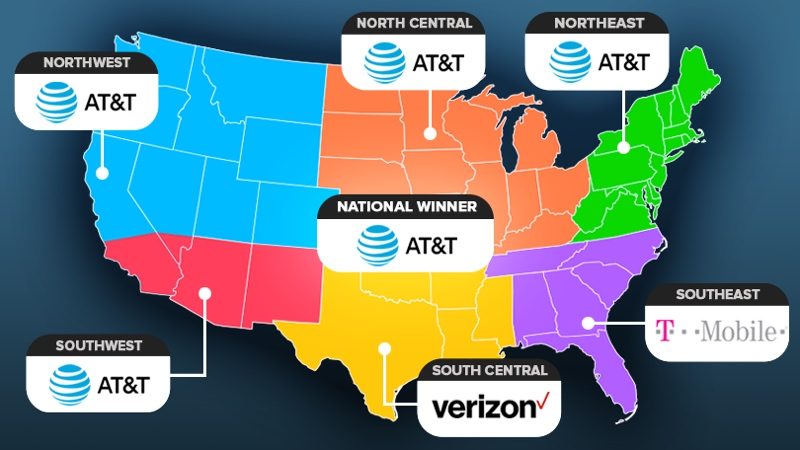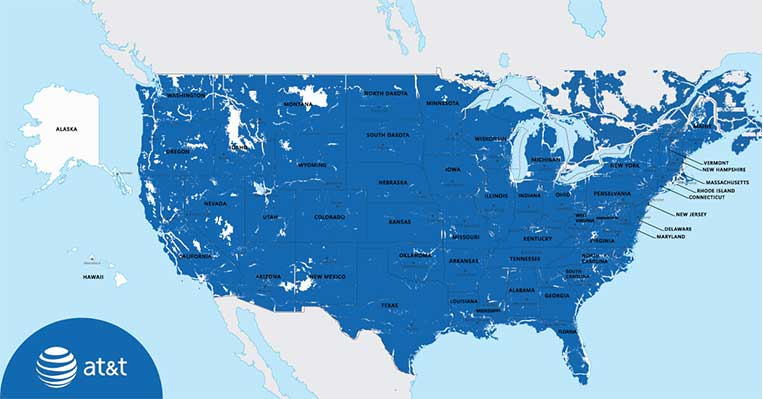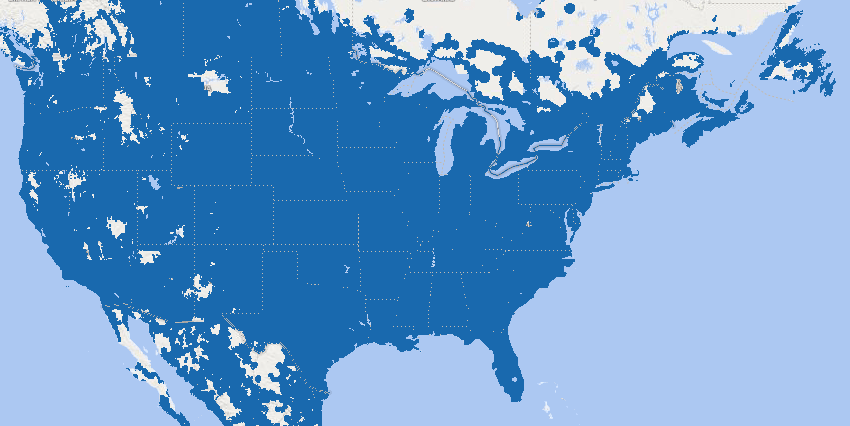Navigating the Landscape of Connectivity: A Comprehensive Guide to AT&T Service Coverage Maps
Related Articles: Navigating the Landscape of Connectivity: A Comprehensive Guide to AT&T Service Coverage Maps
Introduction
With great pleasure, we will explore the intriguing topic related to Navigating the Landscape of Connectivity: A Comprehensive Guide to AT&T Service Coverage Maps. Let’s weave interesting information and offer fresh perspectives to the readers.
Table of Content
Navigating the Landscape of Connectivity: A Comprehensive Guide to AT&T Service Coverage Maps
In today’s digital age, reliable internet connectivity is no longer a luxury but a necessity. Whether for work, education, entertainment, or staying connected with loved ones, a strong and consistent internet signal is paramount. For individuals and businesses seeking dependable wireless service, understanding the intricacies of network coverage is crucial. This guide delves into the world of AT&T service coverage maps, providing a comprehensive understanding of their significance, functionalities, and how they empower users to make informed decisions about their connectivity choices.
Unveiling the Power of AT&T Coverage Maps
AT&T service coverage maps are indispensable tools that visually represent the geographical areas where AT&T’s wireless network offers reliable service. They are designed to provide users with a clear and concise understanding of network availability, enabling them to:
- Assess Network Strength: Coverage maps depict areas where AT&T’s network is strong, moderate, or limited. This information allows potential customers to determine if AT&T’s service is suitable for their location and needs.
- Compare Coverage Options: Users can utilize coverage maps to compare AT&T’s network strength with other carriers in their area, facilitating a comprehensive assessment of available options.
- Plan Travel and Connectivity: Individuals planning trips or relocating can leverage coverage maps to ensure uninterrupted service during their travels.
- Identify Potential Dead Zones: Coverage maps highlight areas where network coverage may be weak or unavailable, enabling users to anticipate potential connectivity challenges and seek alternative solutions.
Exploring the Depths of AT&T Coverage Maps
AT&T offers various coverage map tools to cater to different needs and preferences. These tools provide varying levels of detail and functionalities:
- AT&T Website Coverage Map: This readily accessible map provides a general overview of AT&T’s network coverage across the United States. It offers a basic visual representation of coverage areas, allowing users to get a quick understanding of network availability in their region.
- AT&T Coverage Checker: This interactive tool allows users to input a specific address or zip code to obtain more detailed coverage information for that location. It provides insights into the type of network technology available, such as 4G LTE or 5G, and the expected download and upload speeds.
- AT&T Mobile App: The AT&T mobile app includes a built-in coverage map that utilizes GPS technology to display real-time coverage information based on the user’s location. This feature is particularly useful for travelers or individuals who frequently move between locations.
Navigating the Nuances of Coverage Data
It is important to acknowledge that coverage maps are not infallible and may not always reflect the precise reality of network performance. Factors influencing the accuracy of coverage maps include:
- Data Accuracy: Coverage maps are based on data collected from various sources, including network towers, customer feedback, and industry benchmarks. However, these data points may not always be completely accurate or up-to-date.
- Environmental Factors: Terrain, weather conditions, and physical obstacles can significantly impact network signal strength. Coverage maps may not always account for these variations, leading to discrepancies between predicted and actual coverage.
- Network Congestion: In densely populated areas or during peak hours, network congestion can affect service quality and speed. Coverage maps may not accurately reflect these dynamic fluctuations in network performance.
FAQs: Addressing Common Concerns
Q: What is the difference between 4G LTE and 5G coverage?
A: 4G LTE and 5G are different generations of wireless technology, each offering distinct advantages. 5G typically provides faster download and upload speeds, lower latency, and enhanced capacity compared to 4G LTE. However, 5G coverage is still expanding and may not be available in all areas.
Q: How can I improve my AT&T signal strength at home?
A: Several techniques can enhance your AT&T signal strength at home:
- Utilize a signal booster: Signal boosters amplify the existing signal, improving reception.
- Position your router strategically: Place your router in an open area, away from walls and obstructions, to optimize signal propagation.
- Upgrade your router: A newer router with advanced features may enhance signal strength and performance.
Q: Can I use AT&T coverage maps to compare with other carriers?
A: While AT&T coverage maps are a valuable tool, it’s crucial to compare them with coverage maps from other carriers to obtain a comprehensive view of available options. This comparison allows you to identify the carrier that offers the best coverage for your specific location and needs.
Tips for Optimizing Your AT&T Coverage Experience
- Contact AT&T customer support: If you experience connectivity issues, reach out to AT&T customer support for assistance. They can provide troubleshooting tips and information about potential network outages in your area.
- Monitor network updates: Keep an eye on AT&T’s website and social media channels for updates regarding network expansions and improvements.
- Explore alternative solutions: If AT&T’s service is not suitable for your needs, consider exploring other wireless carriers or exploring fixed-line internet options.
Conclusion: Empowering Informed Connectivity Choices
AT&T service coverage maps are valuable tools that empower users to make informed decisions about their connectivity choices. By understanding the nuances of coverage data and utilizing available resources, individuals and businesses can assess network availability, compare options, and optimize their AT&T service experience. While coverage maps provide a valuable guide, it’s crucial to consider individual needs and factors that may influence network performance. By navigating the landscape of connectivity with informed choices, users can ensure a seamless and reliable digital experience.








Closure
Thus, we hope this article has provided valuable insights into Navigating the Landscape of Connectivity: A Comprehensive Guide to AT&T Service Coverage Maps. We hope you find this article informative and beneficial. See you in our next article!